An Interview With Transgender Longboarding Champion Sasha Jane Lowerson
“In longboarding, the girls are so much better than the guys, and that’s just a fact.”
Sasha Jane Lowerson, the first transgender woman to compete in surfing, claimed multiple titles at the recent WA Longboard State Championships.
Sasha’s victory has become a topic of contention in the surfing community. Within the comment section of a recent Instagram post announcing her win — amongst many unnecessarily rude comments, which won’t be highlighted here — several prominent women in the surf world weighed in.
“Is this real?” asked former CT surfer Sage Erickson.
“Let people think and be what they want, but at least make a separate division,” opined female surfing icon Bethany Hamilton.
Meanwhile, Holly Wawn, Josie Prendergast, and Pacha Light offered words (and emojis) of encouragement around Sasha’s achievement.
“Big congrats to @sasha_jane__trans_surfergirl!” Pacha wrote. “Making history isn’t easy.”
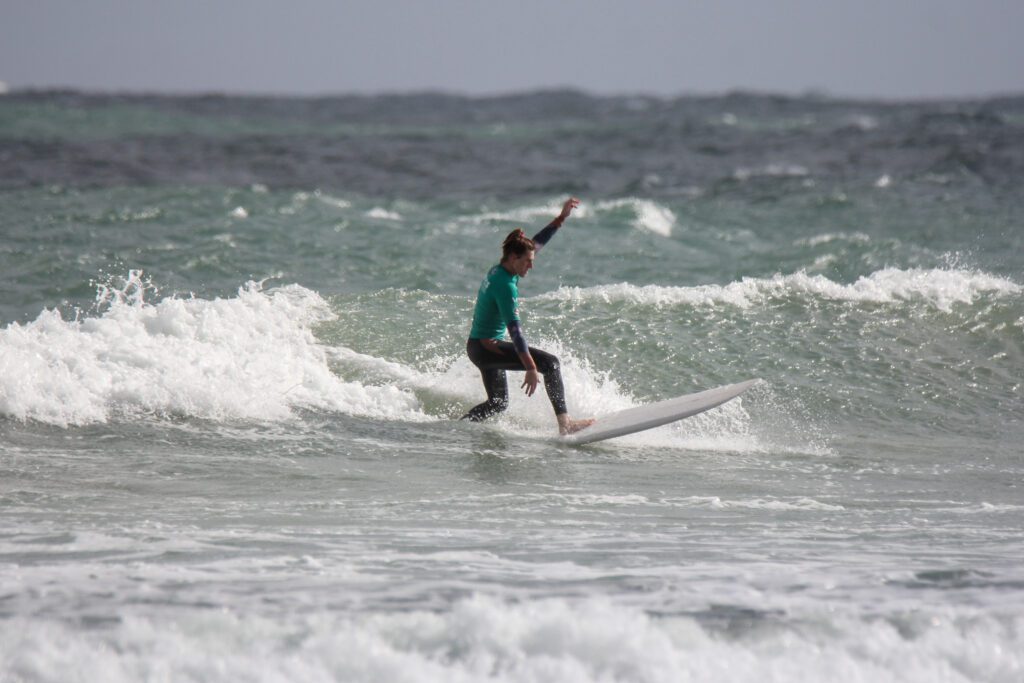
Perhaps the most considered take came from Big Wave World Champ, female Pipe pioneer, and longtime-LGBTQ+ advocate Keala Kennelly:
As a female professional athlete and someone who has fought really hard for equality and equal opportunities for women in sports, this is an EXTREMELY COMPLICATED topic.
First and foremost I think we can ALL agree that people need to be treated with respect.
I believe if you identify as a human being you deserve the same human rights as everyone else.
I am 100% pro trans. I am also 100% pro woman and 100% for women’s equality.
When it comes specifically to womens sports, it is hard to be all three of those things at the same time.
I think trans women athletes absolutely need to be included in sports, but their biological advantages need to be taken into consideration because it also has to be fair for female athletes.
I don’t have the solution. However, having RESPECTFUL non aggressive, collaborative conversations is a start.
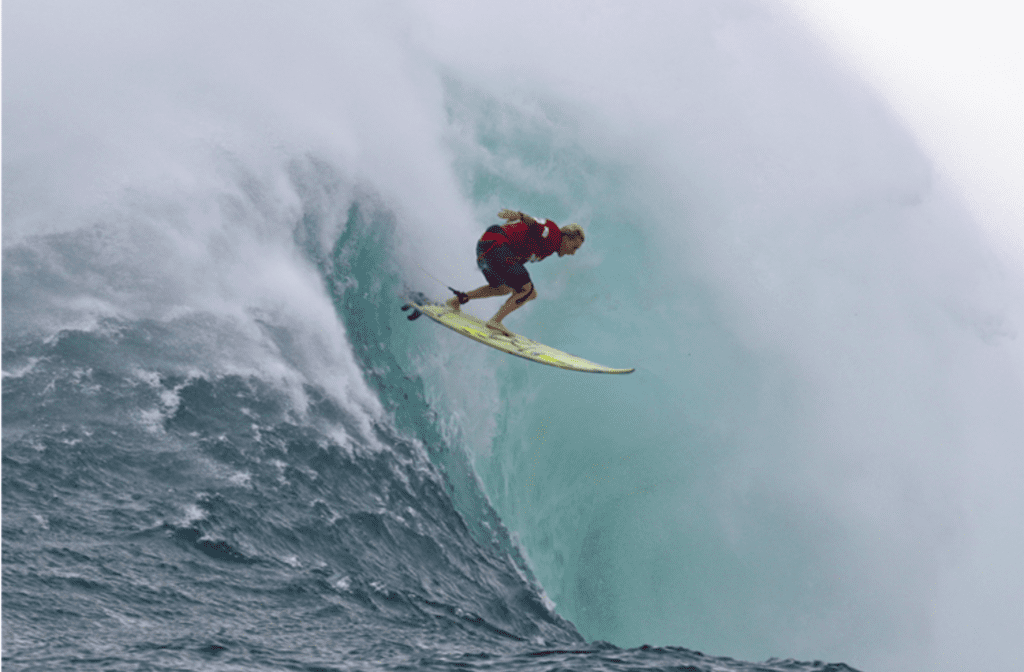
To understand where our general audience stood, we asked our 1.1 million followers in an Instagram poll: “Should transgender surfers be allowed to compete in their identified gender category?”
The results reflected the division in our comments thread — 27% answered yes, and 73% answered no. According to Stab’s social media analytics, 81.9% of our audience identify as male and 18% as female.
Apart from a surf-centered audience, in May 2021, Gallup polled a random sample of 1,016 adults, aged 18 and older, living in all 50 U.S. states. Pollees were asked whether transgender athletes should be allowed to compete in their identified gender category.
According to the poll, a majority of Americans (62%) say trans athletes should only be allowed to play on sports teams that correspond with their birth gender, while 34% say they should be able to play on teams that match their gender identity. (The remaining 4% had no opinion on the matter.)
While the public sentiment does not appear to be in trangender athletes’ favor, many major sporting leagues, organizations, and federations have started to allow fully transitioned athletes to compete in their identified gender category. This includes the NCAA, MMA, WMBA, NWHL, all the way up to the Olympics.
As an Olympic-feeder organization, Surfing Australia recently ruled in favor of transgender athletes being allowed to compete in their identified gender category. Hence Lowerson’s recent victory.
The WA Long State Championships was not the first surf event that Sasha Jane has competed in since her transition — that took place at Noosa Heads in March at the Noosa Festival of Surfing. Sasha lost in the quarterfinals.
This is just one of the many interesting things we learned from our interview with Sasha, who fielded our call from her West Australian shaping bay.
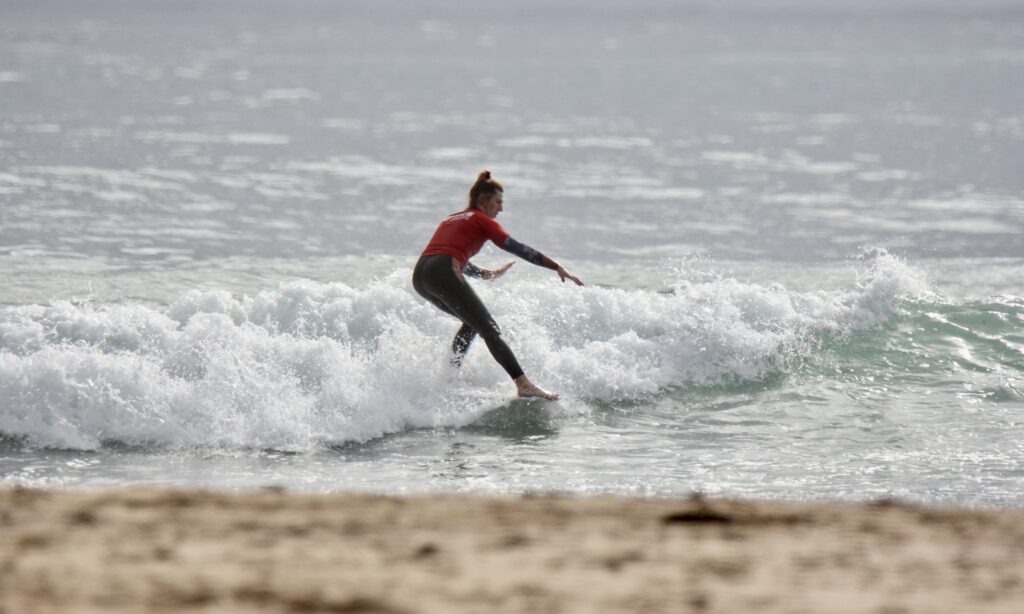
Stab: Hey Sasha. Congratulations on the win(s). What was it like returning to competition at your home break?
Sasha Jane Lowerson: It was only my second event back, and I surfed quite well. The girls were all really welcoming. I was happy to see the policy Surfing Australia had been working on for over a year, that takes into account the Fair Act from state to state, had finally been implemented.
Did you work with Surfing WA to implement these policies of inclusion?
Yeah, I had a little bit to do with it. Surfing Australia is the head governing body in this country, so I contacted them and talked about how difficult it is to be trans in the surfing community. My biggest thing was to push for inclusion at a community level.
What was Surfing Australia’s response?
You always expect the worst in a place of vulnerability, so I was extra surprised — blown away really — by how welcoming, supportive, and accommodating they were.
You mentioned some difficulties within surf community that you’ve come across as a transgender female. Do you mind elaborating?
The problem is centered around social norms. Unfortunately we are still in a bit of a uber-masculine sport, one that’s dictated by attitudes that aren’t healthy. Luckily we are growing and starting to move forward. Thankfully there are a lot more girls in the water now. But if you read any of these comments it’s clear why someone like me does not feel welcomed and is fearful to come out.
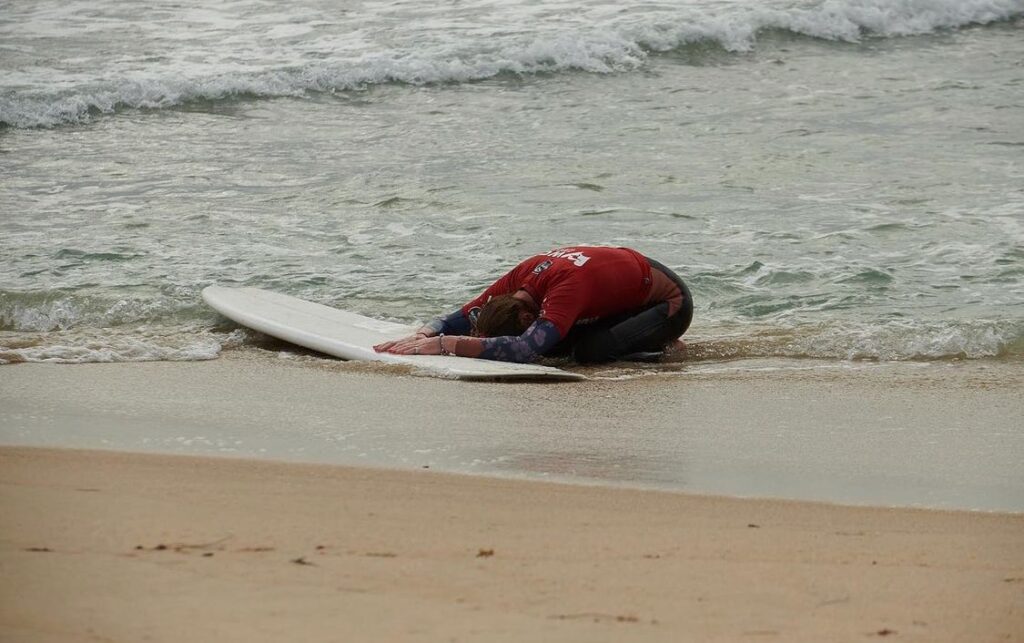
What would you have to say to someone doesn’t agree with a transgender woman competing in a competitive surf arena?
That’s black and white. Surfing is an Olympic sport now and the Olympics are about inclusion. There are policies in place and the surf contests will be run with them. Whether people agree with it or not is irrelevant — I fall inside those regulations and I’m allowed. All people have opinions, and we won’t always agree, so I’m not going to waste my time there.
Got it. Excuse my naivety, but how does transitioning work and what does the timeframe look like?
It takes a long time, hun, it’s like puberty. You take hormone therapy — hormone replacement therapy. Right now I’m 18 months in, and I waited to compete for a little over 12 months, because that was the old IOC Olympic recommendation.
When it comes to competing, a transgender woman athlete is at a disadvantage because her testosterone levels for endurance [to sustain a high level of aerobic activity] are extremely low.
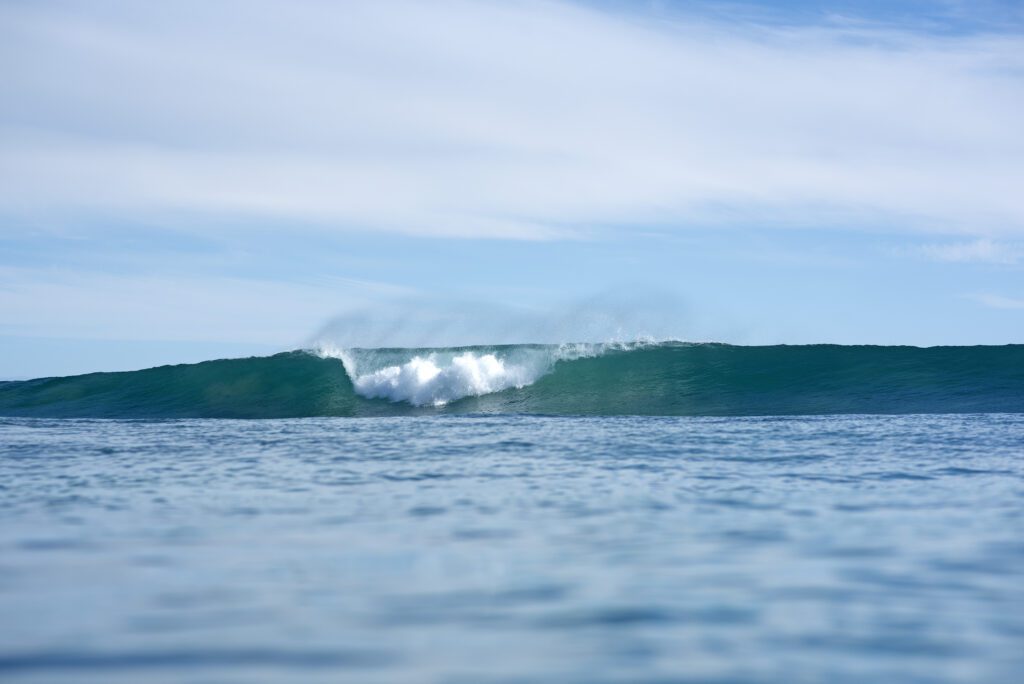
Interesting. At a psychological level, did you notice any differences right away?
The therapy changes you, because your brain runs on hormones. You are a woman — you see, act, behave, and problem solve as a woman does. There’s a tag that we all use, “trans women are women”, because we are.
Have you had to adjust your surfing in response to physical or psychological changes?
I lost 30 kilos [66 lbs] of muscle in 18 months, so my whole style and approach on the board has changed. Mentally, I approach crowded lineups a lot differently. Rather than muscling my way through, I now navigate my way through crowded waters like a smart woman and sell bad waves to the guys. We have quite an aggressive group of male surfers here in Australia.
In longboarding the girls are so much better than the guys, and that’s just a fact. You look at an Olympic sport like shooting, where they brought women in and they started beating the men. So they made a women’s division to save the men from embarrassment. That’s what’s going on here.
Do you plan to return to competition at a professional level with WSL?
I don’t know if I want to comment on that, because it could affect future conversations, considering they just banned Joel from competition for talking the truth [laughs]. Ultimately I would like to return to WSL competition, but I understand it’s a natural progression. Whether they are going to move forward in that direction or not, we’ll see.
Please be mindful this is a highly controversial topic with multiple layers. We want to foster a space of productive discussion, so let’s be civil and remember there are humans on the other side of the screen.
USA Mental Health Hotline #741741 text or call



